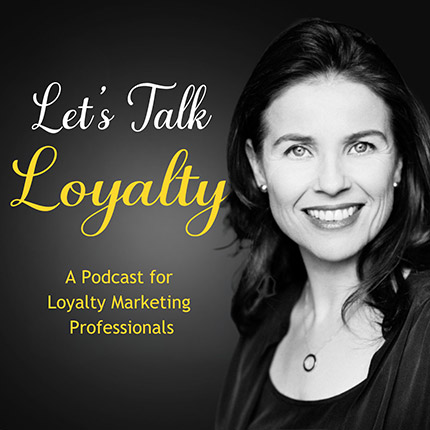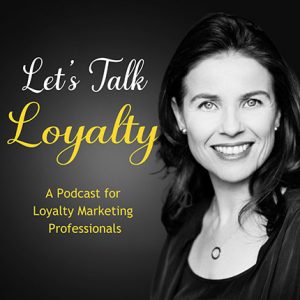Speaker (0s): Let’s Talk Loyalty is an industry podcast for loyalty marketing professionals.
I’m your host, Paula Thomas and if you work in loyalty marketing, join me every week to learn the latest ideas for loyalty specialists around the world.
Welcome to episode 107 of Let’s Talk Loyalty.
My favorite loyalty stories are programs or platforms that serve a higher purpose, that benefit us as people, as well as the companies where our customers of.
In episode 23, I was thrilled to meet Dan Gipple. who is the founder of a loyalty platform called Better Points that uses loyalty, psychology, and mechanics to change consumer behavior such as improving their health.
I had first met Dan through an inspiring story that the BBC did on a loyalty program in Italy called Bella Mossa, a program designed by the city of Bologna to address their problem of pollution.
Bologna is like many cities in Europe and around the world in that it’s suffers from old roads and congested streets.
So Bella Mossa was developed to reward people with points for not driving, and instead, maybe taking a bike walking or taking the bus over time with this consistent behavior change users could earn themselves free ice cream or even beer. The name Bella Masa in Italian actually has a dual meaning.
It means good job and beautiful move. And in the two years that it operated over 22,000 people participated. 78% of them said they walked more 63% use their car less 60% cycled more and over 800,000 foot journeys were tracked in total saving over a half a million tons of CO2. Dan explained to me in the show that it was the European union that funded this program as part of its goal to improve both mobility and sustainability for citizens.
To me, Bella Mosa really was an amazing case study. So you can find the YouTube link to the BBC article in the show notes for episode 23 in your favorite podcast player, Dan then shared with me his background, firstly, in direct marketing and coming into loyalty through some marketing agency work he did for British telecom for several years, Don was commissioned by BT to do an annual review of the world’s major loyalty programs.
He found the whole industry fascinating and realized that even when customers are completely satisfied, they will leave if a better solution comes along. So loyalty is clearly more about emotions than simply getting what they need. So Dan explained some theories that might be useful for us as loyalty marketeers to study. For example, one is called personal construct theory, which is the idea that people’s views actually don’t change very easily.
Another one is called self-determination theory, which covers our core drivers, such as autonomy, the need to feel competent and also to be able to relate to other people. Dan explained to me that for any loyalty program to be successful, we have to remember that people need to have the capability, opportunity and motivation to change. Our final topic was around her. Many of us have had an experience using a health tracker, such as a Fitbit or an apple watch.
Of course the data and feedback are really exciting at first, but actually the behavior change is very rarely sustained. So he explained that we are complex beings. We need extra tools like gamification, personalized recognition and incentives. When we make maybe an extra effort as well as relevant feedback and praise, but more importantly to keep people engaged. The human element is essential. So perhaps connecting us with other friends and family in order to close the loop.
This applies both to programs designed to incentivize physical behavior change, but also the whole emerging area of mental health. And Dan mentioned that absenteeism is estimated to cost the UK economy between 70 to a hundred billion pounds a year. I really loved my conversation with Dan gimbal.
Speaker 0 (4m 60s): So if you’re interested in some inspiring insights on our industry and you have about 45 minutes to listen to something this week it’s episode 23 of let’s talk loyalty. This show is sponsored by the wise market here. The world’s most popular source of loyalty, marketing news insights and research. The wise marketeer also offers loyalty marketing training through its loyalty academy, which has already certified over 170 executives in 20 countries as certified loyalty and marketing professionals.
For more information, check out the wise market tier.com and loyalty academy.org. Thanks so much for listening to this episode of let’s talk loyalty. If you’d like me to send you the latest show each week, simply sign up for the show newsletter on let’s talk loyalty.com and I’ll send you the latest episode to your inbox every Thursday, or just head to your favorite podcast platform. Find let’s talk loyalty and subscribe.
Of course I’d love your feedback and reviews and thanks again for support .


